According to Apple, 12-year-olds can use Instagram. Porn is not allowed on Instagram, but there is adult material.
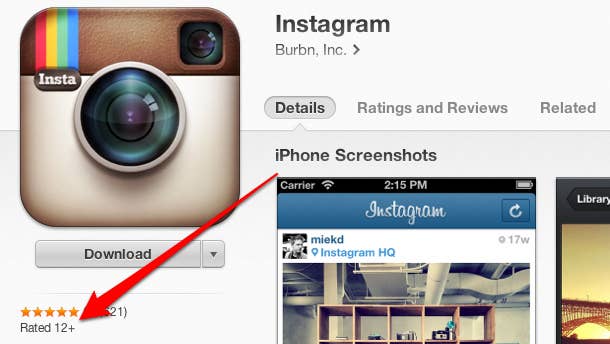
Opera is a web browser and can access the internet, and there's porn on the internet, so Opera gets a 17+ rating.
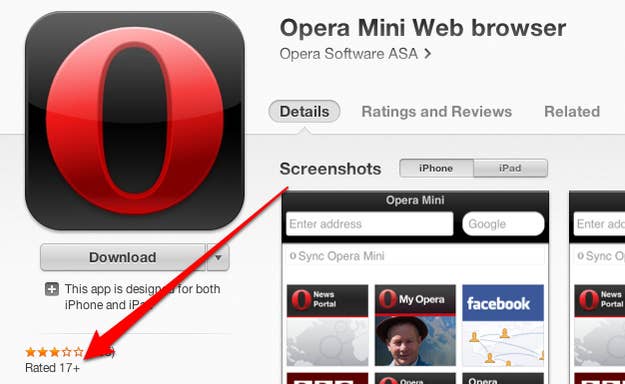
But Twitter, where it's VERY easy to find adult material — from links to explicit videos to actual porn stars — is rated 4+.
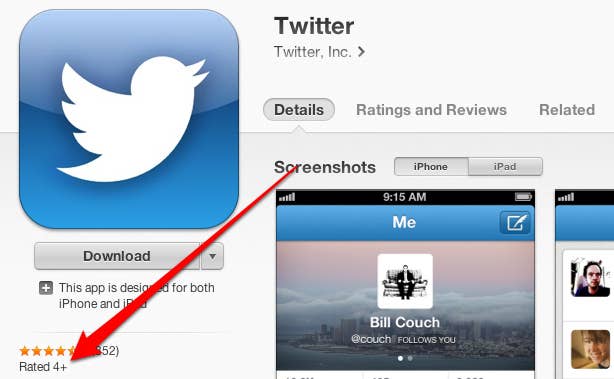
Yesterday, video app Vine, which hosts adult material, was rated 12+.
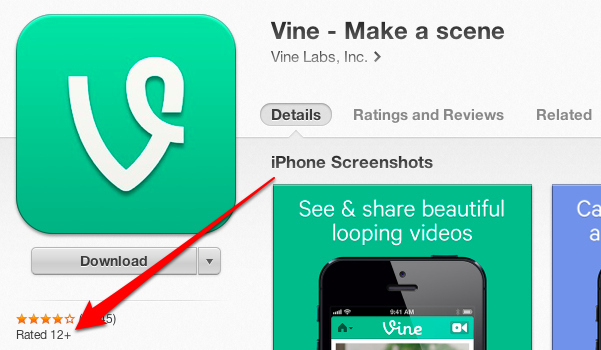
And yet today, after a small update, it's rated 17+.
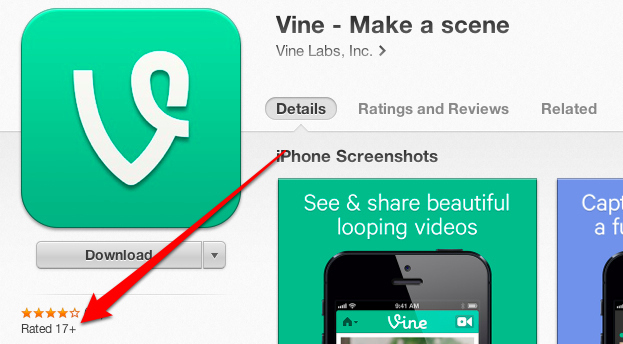
This is absurd.
Apple's App Store ratings, which are submitted by developers but approved by Apple, have seemed inconsistent since the beginning; now they're plainly incoherent.
To find porn in Opera, you just need to type a URL in the address bar. To find porn on Twitter, all you would need to do is search for it. It even has a built-in browser with video support. And yet these apps get completely different ratings.
Vine's case illustrates the biggest problem with these ratings, which thankfully have little effect on app downloads or sales: not that they're arbitrary or that standards are inconsistently applied, but that they're political and swayed by PR. Vine's rating was raised because it was recently involved in a scandal — porn was mistakenly pushed into user feeds for a short time. This was a glitch, however, and not a feature, and the new version of Vine actually has more tools for reporting inappropriate material. (Flickr alternative 500px was kicked out of the App Store for hosting porn, and was given an older rating when it returned. The app's features were, again, mostly unchanged.)
Ratings serve two functions: to tell users what to expect and to make Apple's parental control features effective. At this point, the App Store's rating system — opaque, confusing, and ineffective — accomplishes neither.
